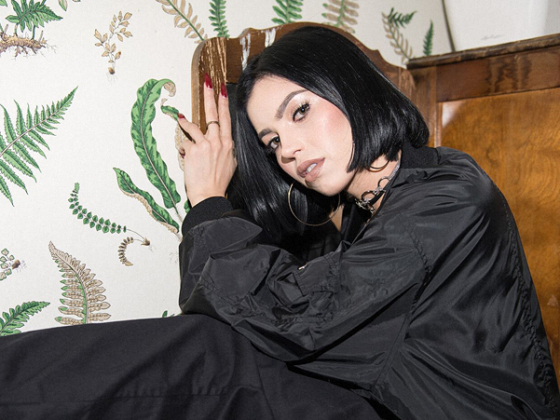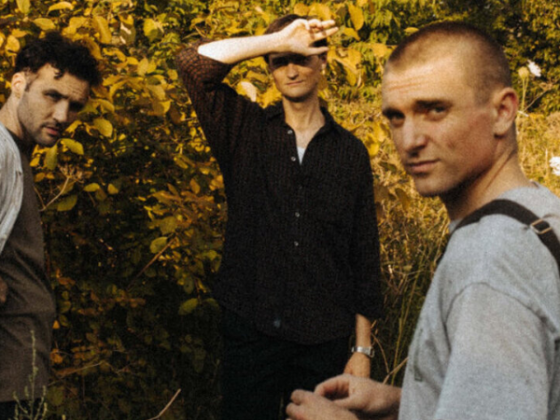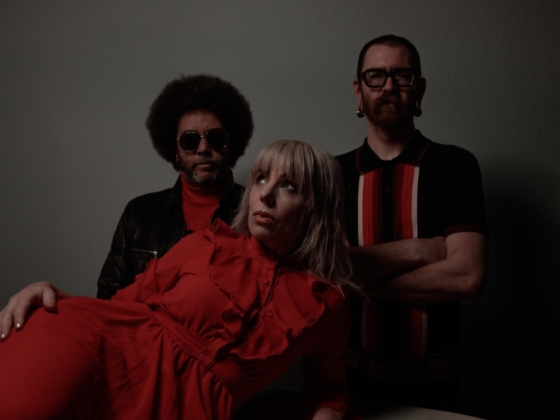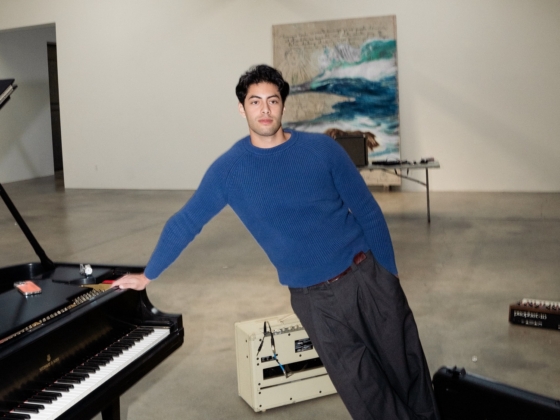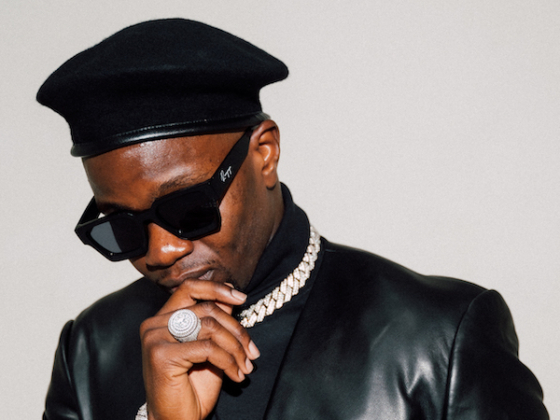David Keenan is snoozing under a tree in Washington Square Park, and as I approach I can't help but make a silent comparison to Huckleberry Finn. He agrees, apparently, as he makes the same one himself moments later. “I love this,” he says, reaching out to touch the pages of my own notebook, in which I have my list of questions. “I have a bit of a stationery fetish.” It’s a trait we both share as bookworms and writers. Keenan is on a two-week tour across the Eastern part of the United States, and I can tell he’s fatigued from his overseas journey and last night’s sold out show. However, when the conversation turns to music, literature and the world around us, a fire lights behind the twenty-five-year-old Irishman’s eyes.
Hours after our meeting, Keenan will deliver a revelatory set of songs to an enraptured audience in Northport, Long Island. Keenan’s particular brand of folk music is the stuff of a genuine wordsmith; he draws heavily on the influence of literary greats who came before him, frequently quoting his heroes in both his music and in casual conversation. “I was never somebody who would be able to quote reels and reels of poet's work,” he tells me after dropping a line from his favourite Wilde poem “The Harlot’s House.” Somehow he manages to avoid pretension and arrogance entirely, and I’m not quite sure how he does it. Everything, from his outlook on life and art to his patterns of speech—he speaks as though the inside of his brain is a constant swirl of poetic imagery—is grounded in an engaging honesty and self-assuredness. David Keenan knows what he’s doing, who he is, and how he got to this particular moment. He has cultivated himself well, but he is the first to admit that his craft is a process. David Keenan doesn't care for the world's approval as long as he knows his work is good. His music is not trendy, per se. Rich lyrics, solitary acoustic guitar and a lilting Celtic voice are not elements of a formula that ensures the captivation of the young people of the day, but it’s exactly that stark difference to everything in the current music market which makes him so compelling. Like all his influences, Keenan has an air of timelessness about him. His music is resistant to modernism, although he doesn’t shy away from the 21st century entirely. “I don't really take [social media] seriously because it's not reality, you know?” He adds wryly, “I think you have to dance with Babylon, but only if you're leading the way.” Ironically, it was a viral video which catapulted Keenan to national attention in Ireland, as he sat in the back of a taxi cab singing and strumming his guitar.
As we sit, Keenan plays with the grass at his bare feet. “We’re in a place of spiritual devolution,” he remarks.
"People say we're evolving constantly, but I think we're spiritually devolving because of the saturation of technology and social media and the effect that has; all the mysteries seem to be demystified. All the folklore mythology seems almost laughable, because we think we know everything. We know less because of that. We don't have to have a formula for everything, and I think a lot of that seeps into music these days. But I'm not a puritanical character smoking a pipe in the corner. I want to investigate all elements of the creative path unapologetically; I'm not boxing myself in at all." David Keenan
Keenan's music is all produced under his own independent record label, Barrack Street Records. It is a project of which he is incredibly proud. Named for the place in Dundalk where his grandmother was brought up, it is an ever-evolving artistic collective. “It's a collective of like-minded souls,” he explains. Two three-track EP’s of his material exist on streaming platforms, as well as the track which introduced me to his unique voice: a cover of Leonard Cohen’s “So Long Marianne” for which the only adjective I am ever able to conjure is “soaring.” His first release, Cobwebs, is a love letter to his own country. “Field upon field of clandestine green,” the opening line to his spoken-word track on the Cobwebs EP, is a perfect example of the kind of imagery characteristic of Keenan’s work, and a phrase he often calls up to describe his homeland. When I ask if he ever has a desire to live elsewhere, he’s a bit ambivalent:
"I want to travel it all. I romanticize Ireland because I've spent a majority of my life there. It's in my bones, my spirit, the makeup of my DNA. It's an ancient place and I feel very grounded and rooted to the earth. But you have to leave home to find home as well. You mustn't be afraid. I'm blessed that I'm Irish and I'm very proud to be Irish. To see this rising and it's a lineage, and there are amazing teachers that came before me."
We feel similarly about Ireland. I’ve spent months at a time there, and it has a unique beauty and poetry about itself. It is difficult to describe, but it’s a pleasure to feel like I’m on the same page about the country with someone. “We're a progressive people and we're very in tune with ourselves. And you see that recently, with the disintegration of the grip that the Church had in Ireland, with the yes vote coming through and the Repeal movement. I hope this trend of enlightenment and outspokenness continues.” He may be old school, but he is no traditionalist.
Raised on a steady diet of classic literature, Leonard Cohen and Tim Buckley, he laments the loss of poetry in life. Keenan's grandparents had a specific hand in raising him, and it shows in everything from his poetry to his mannerisms. There is a high level of respect for the conversation. He is measured, deliberate, and has an air of observing everything even when he isn’t paying express attention to it. “I had this childhood where I had a sense of not belonging anywhere," he tells me. "My grandparents home was a safe place…I was never treated like a kid. Nobody spoke down to me, I was always treated as an equal. That instilled a real sense of identity and strength.”
Keenan left school at eighteen, acutely aware of the fact that college and formal education were not for him: “I ended up on social welfare, doing these computer courses, which were just awful. Imagine me, stuck behind a computer all day!" He laughs, looking on the bright side of what must have been a difficult time: "It got some great lyrics out of me because I was so frustrated.” He escaped the claustrophobic feeling of home to Liverpool, where he busked on the street, needing to earn twenty-two pounds a day to live. “It broke down every inhibition within me. You have to play, if you don't play you aren't going to eat today. That was the driving force…it was the first time I ever felt really tuned in to a place.”
On his writing process, he is adamant: it’s not entirely fate or talent. He isn’t coasting. “If I don't write every day I begin to unravel,” he tells me, gesturing to his own notebook. Discarded in the grass for now, it will no doubt be taken up again soon after I leave. “The static builds up. I forget who I am almost. It's like eating or sleeping or breathing. If I don't do it I get overwhelmed with a sense of guilt, and a sense of being lost. I've always done it. You can have faith in waiting for inspiration to fall from the clouds, and it does happen, but I think discipline is a really important thing.” He speaks with his hands, a trait he has inherited from his grandmother. Several tattoos inked into his forearms are immediately visible any time he says something. Among them, a quill in an ink pot. “[The ink pot] is for the next song,” he says: “a reminder to appease the muse.”
We are interrupted by a young boy scout in the park who is raising money for underprivileged youth. As I shell out three dollars, Keenan says “the money’s a pain in the arse here, isn’t it? You think you’re loaded, and you’ve got ten dollars.” It’s a rare form of speech for him; he sounds like a proper millennial for the first time since we’ve met.
The conversation has turned to logistical questions, and I know he’s given about all he has to the last forty minutes. He is not one to do anything by half, and although I don’t see this until later in the evening as we’re mingling with the crowd after his show, he treats everyone he meets with the same pointed attention. There is a profound sensitivity in Keenan. This is someone unafraid of himself and the world around him. He refuses to hide behind sarcasm, actively seeking out experiences in life that will inflict on him pain and joy in equal measure. Everything earnest and romantic about the past and present which might give anyone else pause, he rushes at headlong and with an open mind: "If you're constantly unearthing things every single day, you're going to come up with a piece of gold. I think it's important for me to draw from that well of experience and to top it up again and again, with different places and people. To embrace all the madness of life."


